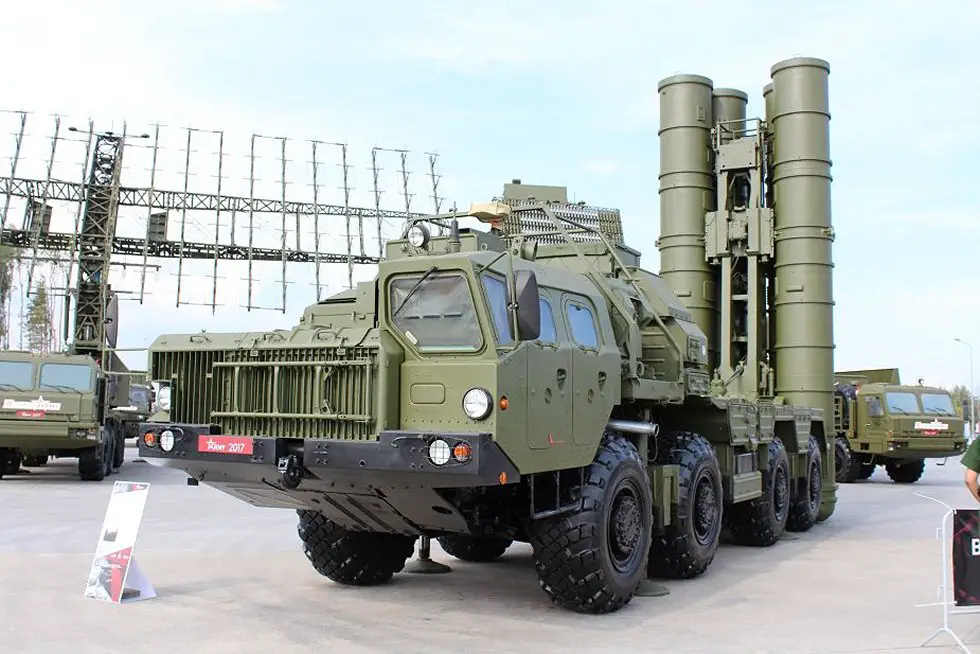Breaking news
Russia and Qatar boost military cooperation.
On January 25, Qatar’s Ambassador to Russia Fahad bin Mohammed Al-Attiyah told TASS that Doha had reached an advanced stage of negotiations with Moscow over the purchase of S-400 air defense missiles. Qatar had already been qualified by Russia as an important partner for military markets. Moscow and Doha are to become closely linked in that field.

S-400 air defense missile system (Picture source: Army Recognition)
Hence, on February 22, Qatari high-level representatives were in Moscow for Putin’s meeting with the leadership of the defense ministries of several countries. This is to regard in the perspective of an interesting development: Russia has been improving relationships with Saudi Arabia and the United Arab Emirates (UAE), while these two countries are strongly opposed to Qatar in a regional influence competition. Therefore, Moscow’s decision to sell sophisticated weaponry to Qatar comes with a significant risk of backlash, compensated only by Russia’s political strategy of playing a more important role in the Middle East.
Since the start of the Gulf Cooperation Council (GCC) blockade against Qatar in June 2017, the latter has boosted its military potential to become more able to deter Saudi Arabia and the UAE from any aggressive action. As the United States has been reluctant to antagonize Qatar’s GCC rivals by contributing greatly to Doha’s military modernization efforts, Qatar has turned toward Russia.
In this framework, the acquisition of air defense systems – i.e S-400 missiles – from Russia implements Qatar’s willingness to clearly go forward in getting ready to face the major risk identified. The Qatari Defense Ministry signed a military technology sharing agreement with Moscow in October. Intentions have come true. An appreciable aspect for Moscow of this move is that Qatar has proved to be an easier country to negotiate with than Saudi Arabia or Turkey.
As Turkey is a NATO member, Washington attempted to deter Ankara from purchasing Russian S-400 missiles but hasn’t done anything to “complicate” the same purchase by Doha. In addition, Qatar’s recent purchases of Chinese SY-400 missiles demonstrated Qatar’s ability and reliability as a high-tech armament client.
However Qatar’s Minister of Energy and Industry Mohammed bin Saleh Al-Sada said the expansion of Russia’s liquefied natural gas (LNG) sector is mutually beneficial, a growing competition between Russia and Qatar for domination over LNG markets is likely to rise, as indicated by the rumors that Russia pushed Syrian President Bashar al-Assad to block the transit of Qatari natural gas through Syrian territory. Therefore, an increasing Russia-Qatar partnership in the field of defense could also increase collaboration between the two countries on LNG export projects instead of a competition. Maybe.
Last but not least, considering the role played by Qatar in the Middle East, an improvement in Russia-Qatar relations could bring Moscow a precious ally in its conflict arbitration policy in the region, starting with Yemen where Moscow wants Yemen to be governed by a secular authoritarian leader willing to share power with pro-Iran factions.
Concerning Syria, Russian policymakers are pushing forward with their Qatari counterparts on resolving the harsh conflict. Moscow is pushing Qatar into convincing Doha-aligned Syrian opposition factions to diplomatically engage with president Assad, which they have been refusing so far.
However the Russian government keeps officially neutral in the Saudi Arabia-Qatar struggle, an improvement in Russia-Qatar relations would bring Moscow a valuable client for Russian military technology, facilitate the development of Russia’s LNG sector and increase Russia’s role as a Middle East conflict arbiter.


























